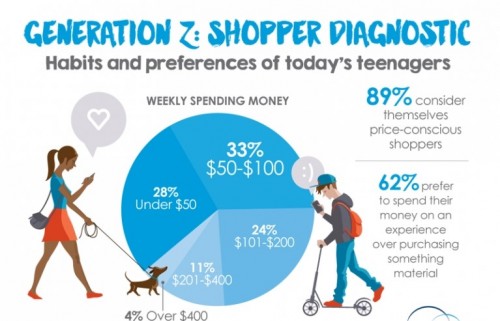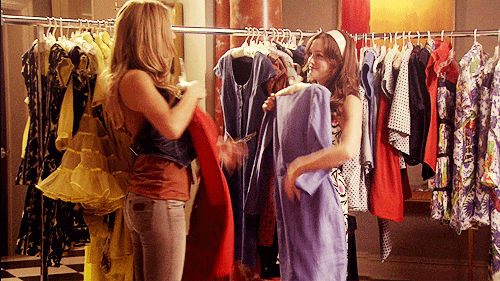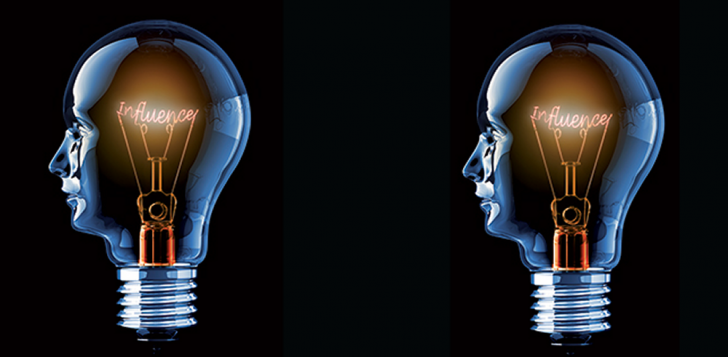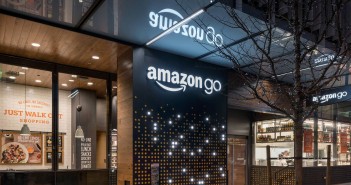Heads Up Retailers: Generation Z People Prefer In-Store Shopping
In the age of online shopping, more and more retail stores face the challenge of attracting customers to visit their location. Window displays are still plenty with carefully arranged merchandise to beckon visitors to have a look at their products.
The race continues between virtual shopping sites and traditional retail stores. True, both offer various options to choose from. Yet, it is left to the preference and lifestyle of the would-be buyer where best to make a purchase.

Interestingly, research on consumer spending habits has shown that Gen Z individuals tend to enjoy going to stores to first window-shop and then go through selections of items of their liking (more about this later) until they find what they’re after. You might wonder why these youngsters, who were born anywhere from the mid-’90s to the early ‘00s, would still troop to the
You might ask why these youngsters, who were born anywhere from the mid-’90s to the early ‘00s, would still troop to the mall. Yet, they can just use their trusted smartphones or tablets to tour shopping sites. Well, retailers might be pleased to take note of what was uncovered and should benefit from these insights:
“The conventional wisdom now is that Generation Z is fickle, harder to reach and harder to lock in. As a result, there seems to be a lot of inaction inertia on the part of companies.”–Keith Niedermeier
 Shopping is a social experience
Shopping is a social experience
Gen Z people are in it for the experience. Store-hopping is made even more pleasurable by having friends or family around as they browse through items. At times, friends shop all at the same time. Doing so is rather thrilling as they compare their purchases afterward.
 They are after gadgets, clothes, and shoes
They are after gadgets, clothes, and shoes
Undoubtedly, these young shoppers put devices at the top of their list. They want to literally get their hands on the latest gizmos and see how the things feel and work as they hold the devices. Next on Gen Z’s list are
Next on Gen Z’s list are clothes and shoes, which definitely require them to examine and try on. These priority items cannot be scrutinized and tested if all purchased online.
 Compared to other generations, they patronize Black Friday week the most
Compared to other generations, they patronize Black Friday week the most
Studies show that Gen Z shoppers make up the majority of the patrons of Black Friday week. This makes sense as they are vibrant and young. They have the “energy and enthusiasm” to take advantage of the longer store hours and sales promotions. Their spending power may not be as vast as that of the other generations, but they still storm the stores during this season, in the hope of getting great deals.

 They spend more than half of their holiday budget on tangible gifts
They spend more than half of their holiday budget on tangible gifts
Going to retail stores allows Gen Z shoppers to see, touch, and smell the things they plan to buy.
Based on surveys done in the US, Gen Z individuals spend 58% of their money on tangible presents for friends and family. Thus, they prefer to personally examine the goods that they want to give as gifts.
 They value consumer reviews more than company advertisement
They value consumer reviews more than company advertisement
With their reliable smartphones, they spend time poring over reviews of products that catch their interest. They don’t rely much on ads. Rather, Gen Z compare various customers’ comments before making any shopping decision. Retailers should, therefore, have a dynamic and customer-focused feedback mechanism in place.
 They go for products endorsed by their influencers
They go for products endorsed by their influencers

Young people are influenced by those with whom they feel a connection or affinity. These range from to celebrities, to public figures, to the people they most admire.
Hence, these influencers could be paid to endorse the product or use the product. The majority of Gen Z consumers declare that they relate to their influencers on a personal level.
It is interesting that this young generation born into the Internet technology is not entirely dependent on the Internet for their shopping. Gen Z people want to be out there to see for themselves. They want value for their money. They are said to be smarter, more mature, and conservative than the generations before them.




